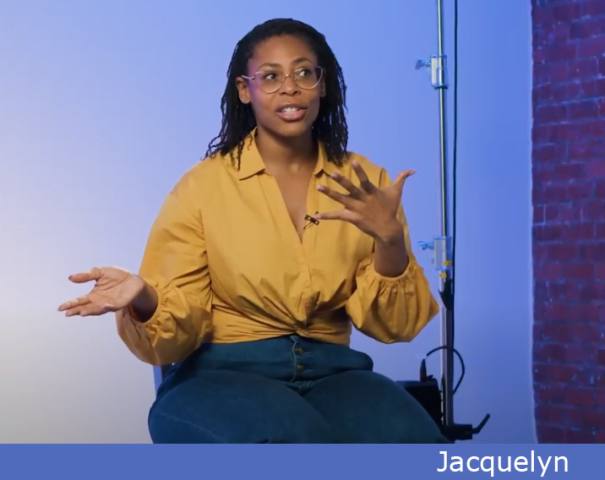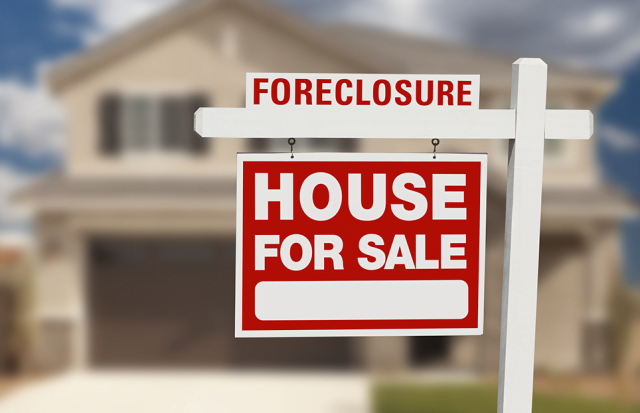Filter


Homeownership in Retirement: an Asset or a Burden?
The conventional wisdom for older workers heading into retirement is that owning a house is a good thing. The property has no doubt appreciated over many years, adding to their wealth. But new research finds that homeowners often strain to a pay a mortgage that is larger than what they can realistically afford. The essence of the problem for retirees, who usually rely on savings to help with living expenses, is that many do not have enough to make their monthly payments comfortably. This problem has become more pressing over the years. Half of the retired homeowners who were born in the early years of the baby boom wave are still making mortgage payments. They are in a very different…
March 14, 2024
Caregivers Share their Stresses and Joys
Jacquelyn had finally snared her dream job as an assistant to a television writer in New York City. Riding the subway one Saturday night, she got a call that changed all that. Her mother, who was living with her grandmother, was in trouble back home. Jacquelyn returned to find rotting food in the refrigerator and a house on the brink of foreclosure for past due mortgage payments. Her mother had Alzheimer’s disease. Jacquelyn said she had to quit her job and never returned to New York. “Caregiving requires a restructuring of who you are,” she said. Undervalued, stressed, exhausted, guilty and even resentful – these are some of the feelings that unpaid caregivers, who are mostly women, experience on t…
March 12, 2024
Shrinking Social Security’s Racial Gap – but Only a Little
Consider the myriad reasons Black Americans get 19 percent less from Social Security during their retirement years than White retirees. Inequities in the labor market limit their job opportunities and earnings, which are the basis for determining how much they will get in their Social Security checks. Poorer health or the demands of caring for children or ill family members shortens careers and cuts into benefits. Smaller benefit checks are also a problem because Blacks are less likely to marry. The strain on single workers’ finances spills over into old age if they lacked a higher-earning spouse who would get a bigger Social Security check. Hispanics also get less – 14 percent less – for some of the same reasons,…
March 7, 2024
Saving for Retirement Can Mean Adding Some Debt Too
In today’s world, workers need to save if they want to be comfortable in retirement. But there are also limits to what many people can afford. A new study finds that when U.K. workers were automatically enrolled and started contributing to a retirement savings plan, their household debt – credit cards, bank overdrafts, and other unsecured loans – increased. For every 32 to 38 pounds (or $40-48) in combined monthly contributions by the employer and employee, their debt rose by just over 7 pounds (about $9). Stepping back to look at the big picture, this research also confirms the benefit of auto-enrollment: it encourages workers who might not otherwise have saved to get started. And the increase in unsecured debt,…
March 5, 2024
Surging U.S. Centenarian Population Requires Action
The growth in the over-100 population is gob-smacking. In 30 years, Pew reports that the number of U.S. centenarians will quadruple to more than 400,000. To get a sense of what this will mean, picture every resident in Tampa, Fla., being over 100. In 1950, only 2,300 people in the entire country were. Most centenarians today are women and will be in the future but men are also living longer. Men will make up about a third of them in 2054, up from a fifth currently, according to Pew. The rapid growth in the over-100 population is part of a larger trend of an aging nation, which creates three pressing policy concerns. First, all these old people are going to…
February 29, 2024
Crack-era Incarcerations Added to the Disability Rolls
Some 300,000 men in their 50s and early 60s were receiving federal disability benefits in 2016 as a direct result of a past surge in incarceration, according to new research. The number of American men in federal or state prisons peaked at 1.5 million in 2010. That surge, which continues to affect the disability program today, was rooted in the crack epidemic of the 1980s that entangled many baby boomers and in the three-strikes laws in the 1990s that put more men in prison for drug offenses. The increase in the prison population and its subsequent fall roughly follows the rise and fall in the number of men on the disability rolls. A new study confirms a link between men’s…
February 27, 2024
Connecting Black, Hispanic Layoffs to Retirement Wealth
Homeowners nearing retirement have 40 percent of their wealth tied up in their homes. But to what extent do racial disparities in employment affect workers’ ability to hold on to a home and build up that wealth? This question is at the heart of an ambitious study of U.S. homeowners that digs into whether stable homeownership – or, rather, a lack of it – contributes to the longstanding gaps in retirement wealth between Blacks and Hispanics and wealthier White retirees. The researchers find that the racial disparities in homeowners’ finances while they are working continue after they retire and start collecting Social Security. And Black and Hispanic workers’ employment histories, and specifically their higher chances of having been laid off,…
February 22, 2024
4 Phases of Retirement. The Second One is Not Much Fun
This blog usually focuses on the financial side of retirement. But if you’re not preparing emotionally and socially – and many boomers aren’t – retirement will be a bumpy ride. Riley Moynes, a writer and public speaker, issues this warning in the video that appears below. But he also offers sound advice on how to smooth things out. The advice is dispensed in his descriptions of the four phases of retirement: vacation, loss, experimentation, and the reward. He arrived at these phases after interviewing dozens of retirees. The vacation is the fun part. At least that’s the stereotype for older workers who are eager to give up the pressures of work and a rigid schedule and look forward to…
February 20, 2024
Shopping for Assisted Living is an Opaque Experience
An advocate for improving care and federal oversight in assisted living facilities succinctly described the experience of searching for a safe place for a loved one. “The assisted living sector operates under a caveat emptor – let the buyer beware – principle,” Richard Mollot, executive director of the Long Term Care Community Coalition, told the Senate Committee on Aging in January. His testimony about the lack of transparency in the fastest-growing segment of the long-term care industry provided the context for the discomfiting feeling I had last year when shopping for assisted living for my elderly mother. Mollot’s and other experts’ testimony gave me a better understanding of why I felt that way. A crucial thing for prospective residents and…
February 15, 2024
Medicare Advantage Reigns. So Who Still Buys Medigap?
Low premiums, aggressive marketing and extras like dental care and prescription drugs have propelled Medicare Advantage plans to half of the retiree insurance market. Nevertheless, some people still prefer traditional Medicare combined with Medigap insurance. Medigap buyers on average use $12,200 in medical care annually – $2,300 more than everyone else on Medicare – according to the first known study to capture all sources of spending over many years, including Medicare payments, the retirees’ out-of-pocket deductibles, copayments and coinsurance for tests and care, and payments by insurers and other public programs. (Premiums are excluded from the estimate.) Since Medigap buyers spend more, a logical supposition is that they are less healthy. But the researchers found that they are actually healthier than…
February 13, 2024
Rising House Prices in COVID Still Cause Sticker Shock
If you want to find a place where houses remain affordable, try Syracuse, New York. It’s a college town, so it’s probably a nice place to live. Syracuse is the only large U.S. city where the cost of a typical home is less than three times the household income of residents in that area, according to a new report by Harvard’s Joint Center for Housing Studies. U.S. News & World Report named it one of the top places to live, and a big reason was affordability. “Price-to-income ratios that low were the norm across much of the country in prior decades,” the center explained. But no longer. The ratios are at their highest levels since the 1970s. In 2022, 48 of…
February 8, 2024
People with Disabilities Were More Cautious in COVID
Although no one was left untouched by COVID’s devastation, people with disabilities engaged in cautious behaviors far longer than people without disabilities, according to Mathematica research contrasting the shift in attitudes about the pandemic over time. Earlier studies by other researchers have shown that people with disabilities who contracted COVID had higher rates of hospitalization and mortality than people without disabilities. Americans with intellectual disabilities had the second-highest COVID death rate, after the elderly, among those who were hospitalized. If they had developmental disabilities, cerebral palsy, or Down syndrome, comorbid medical conditions made them more susceptible to COVID-related mortality. People with any type of disability had longer hospital stays, and their risk of readmission was higher. In 2020, most…















